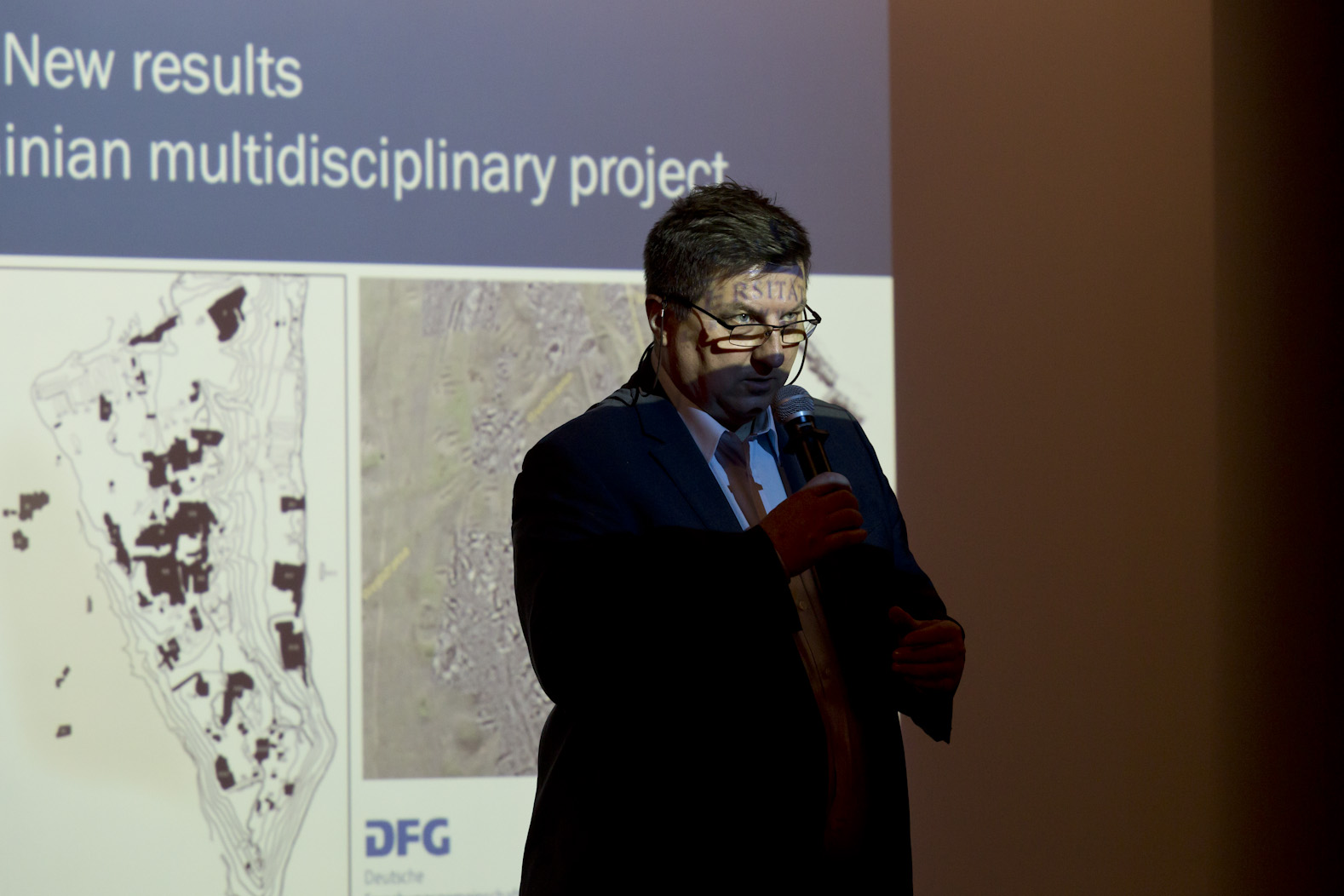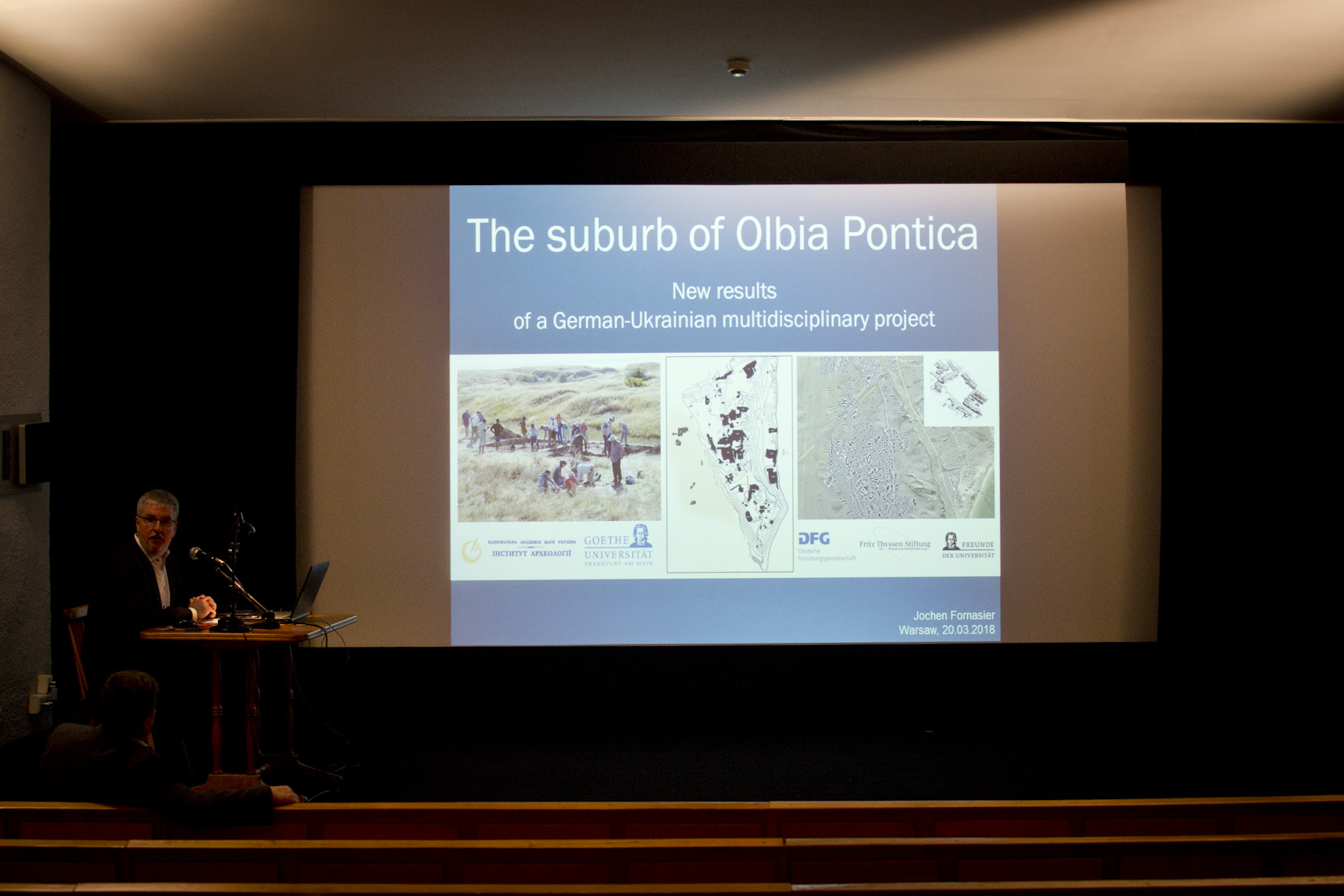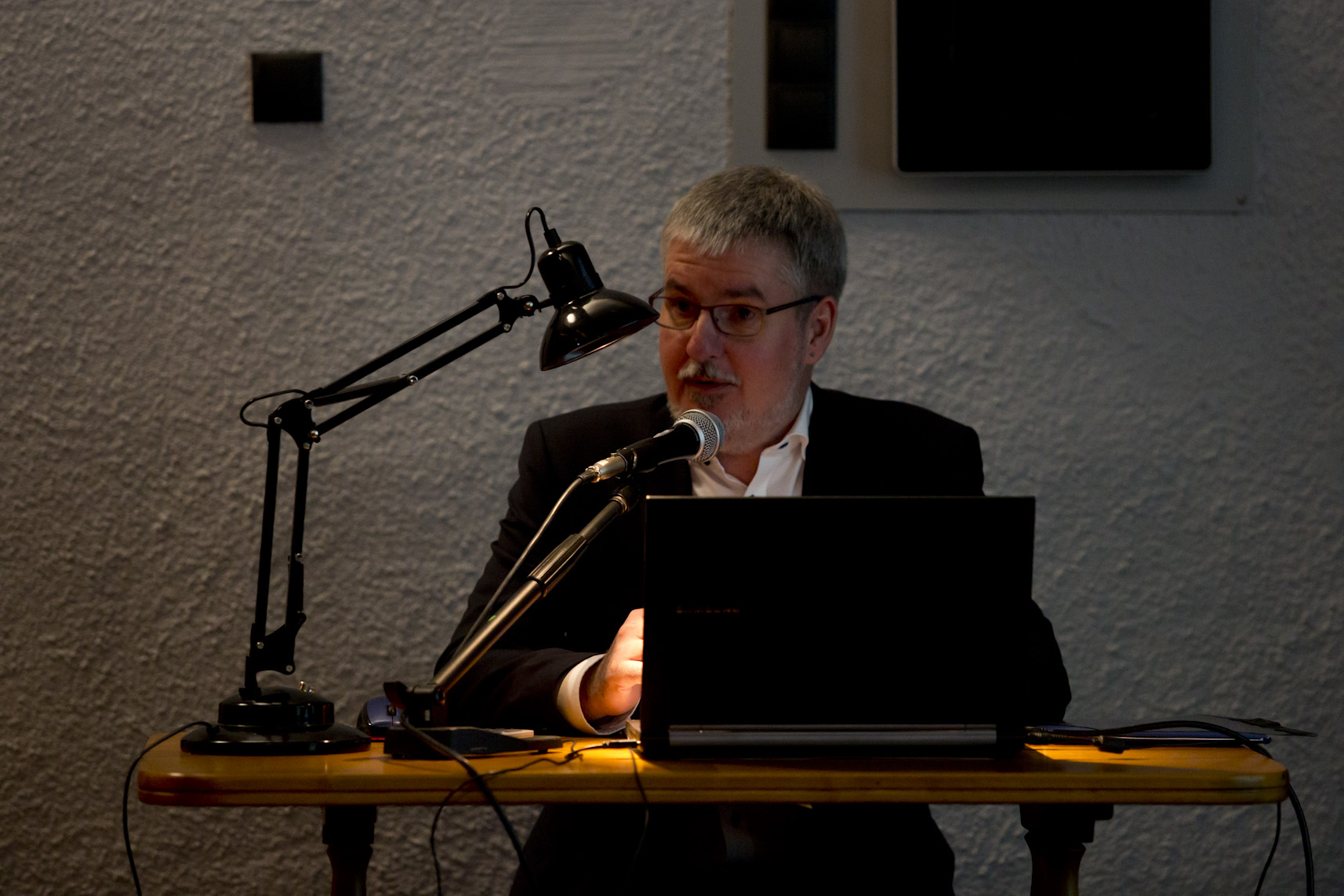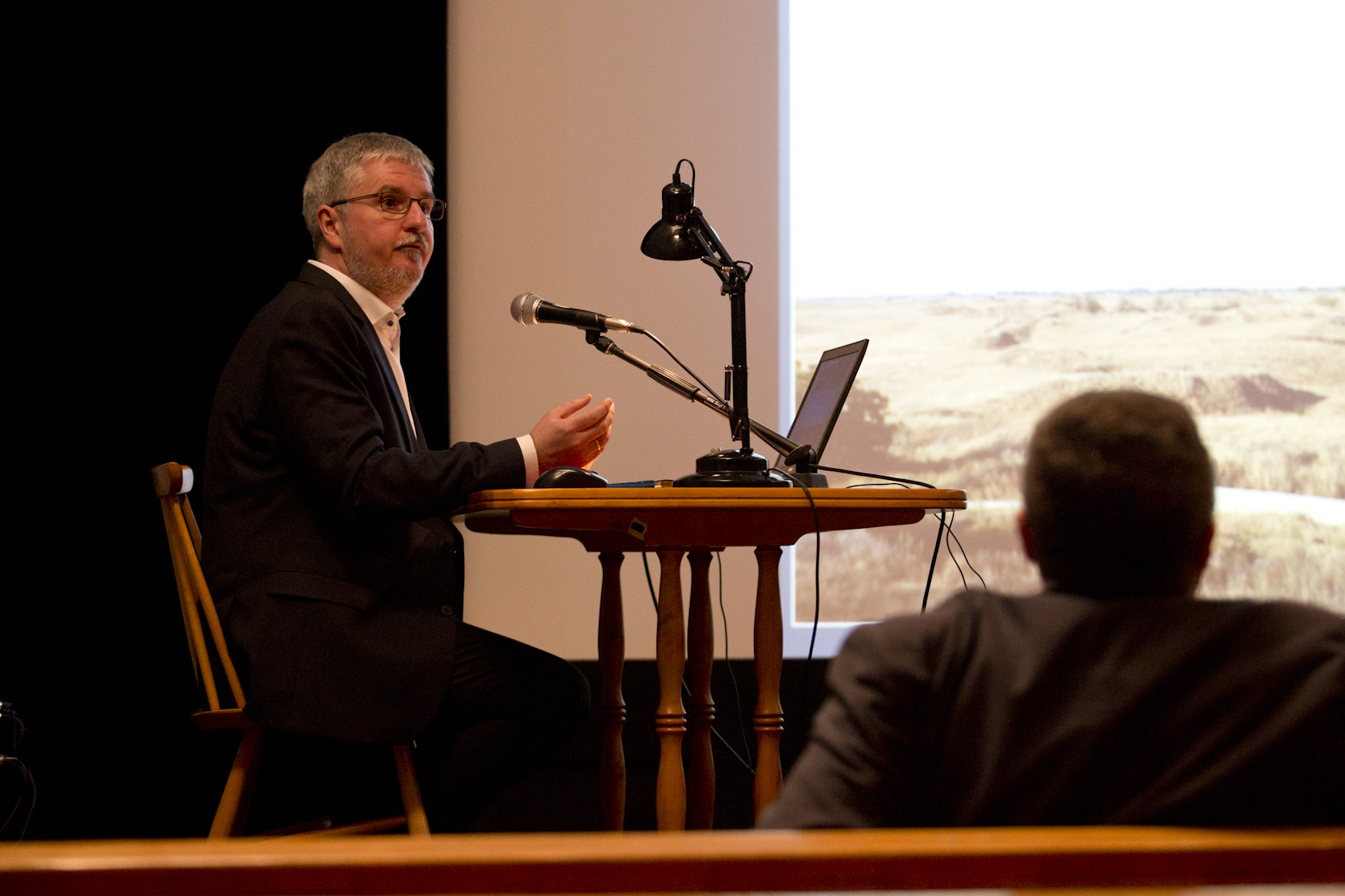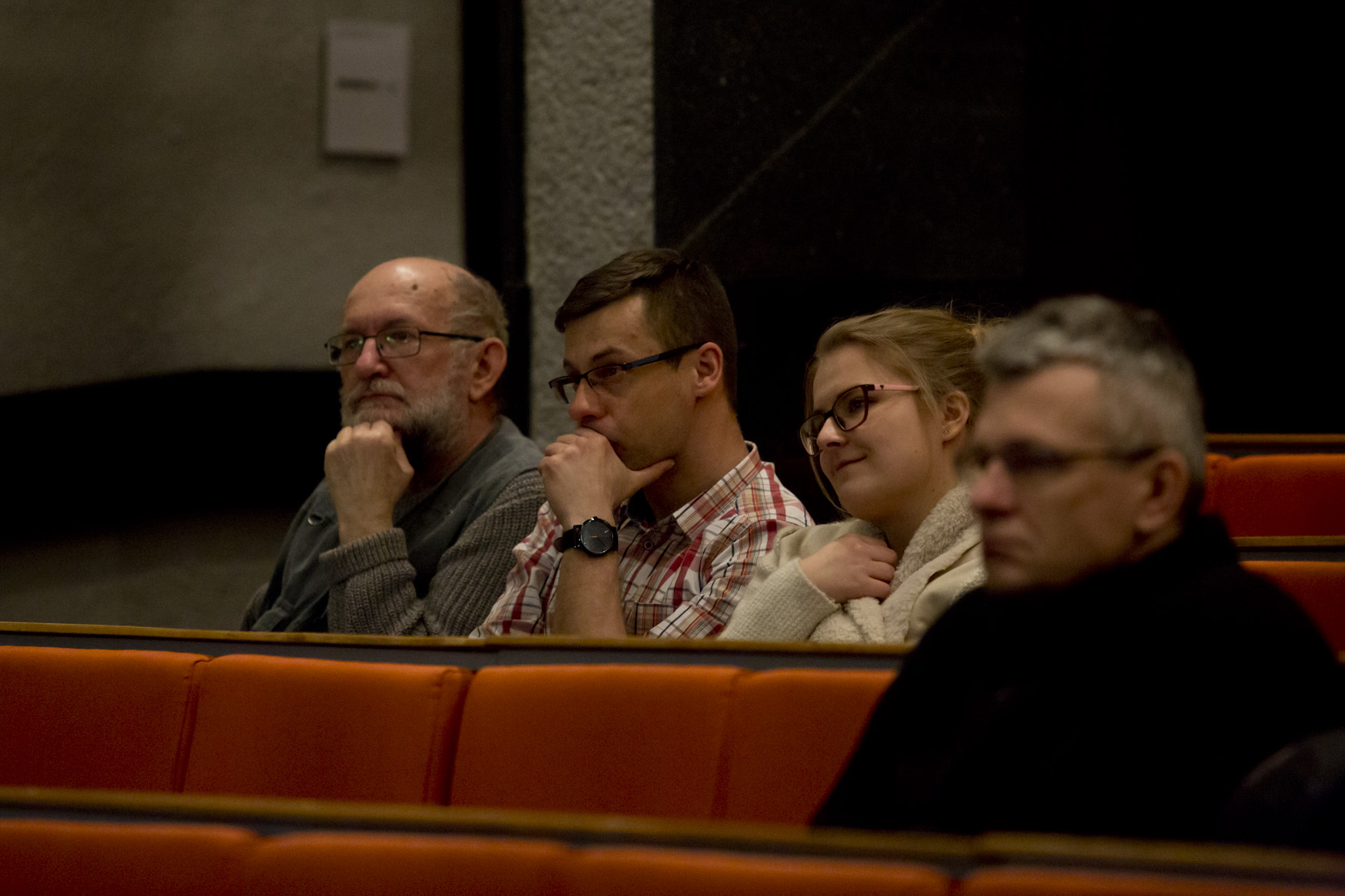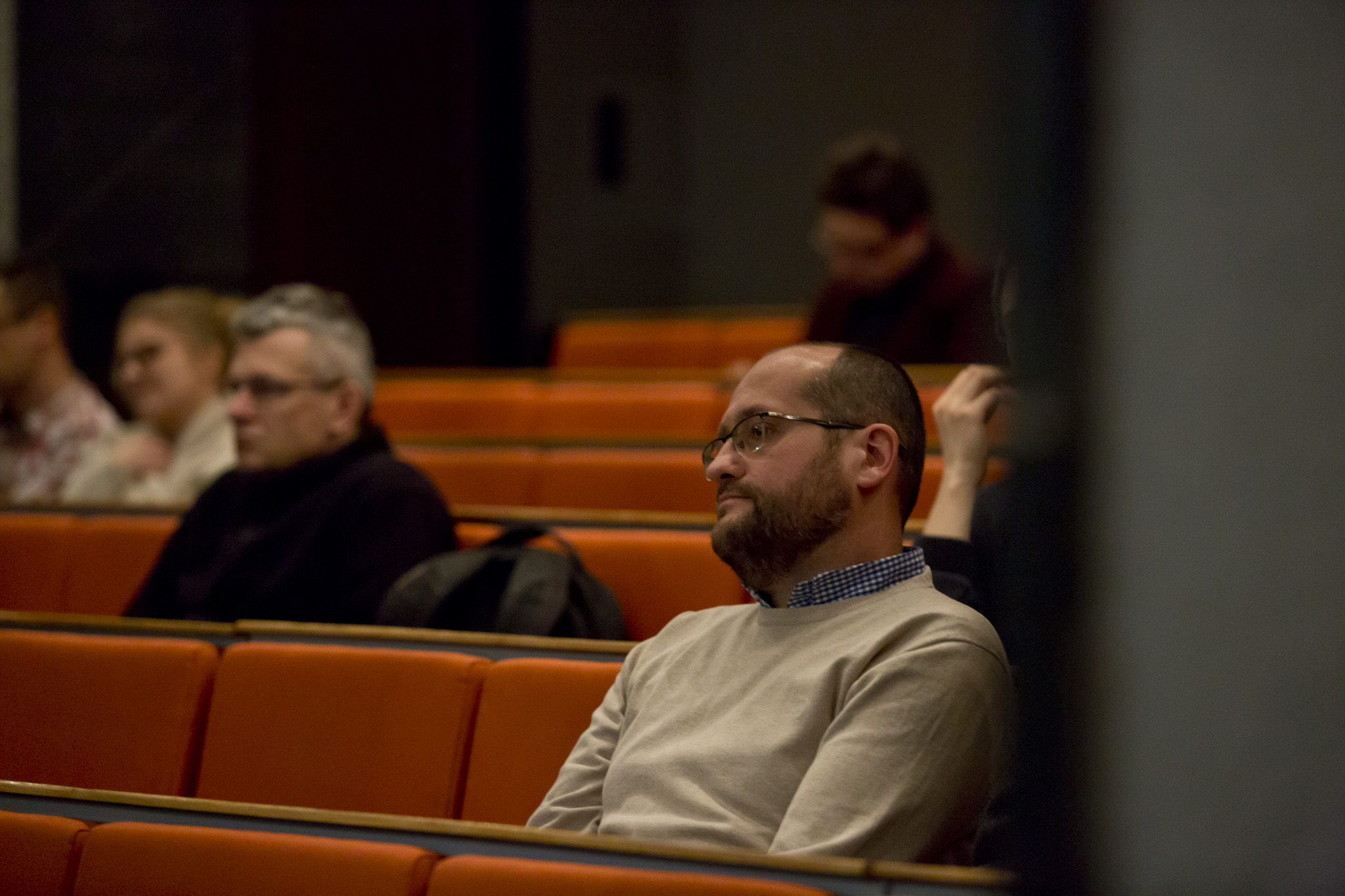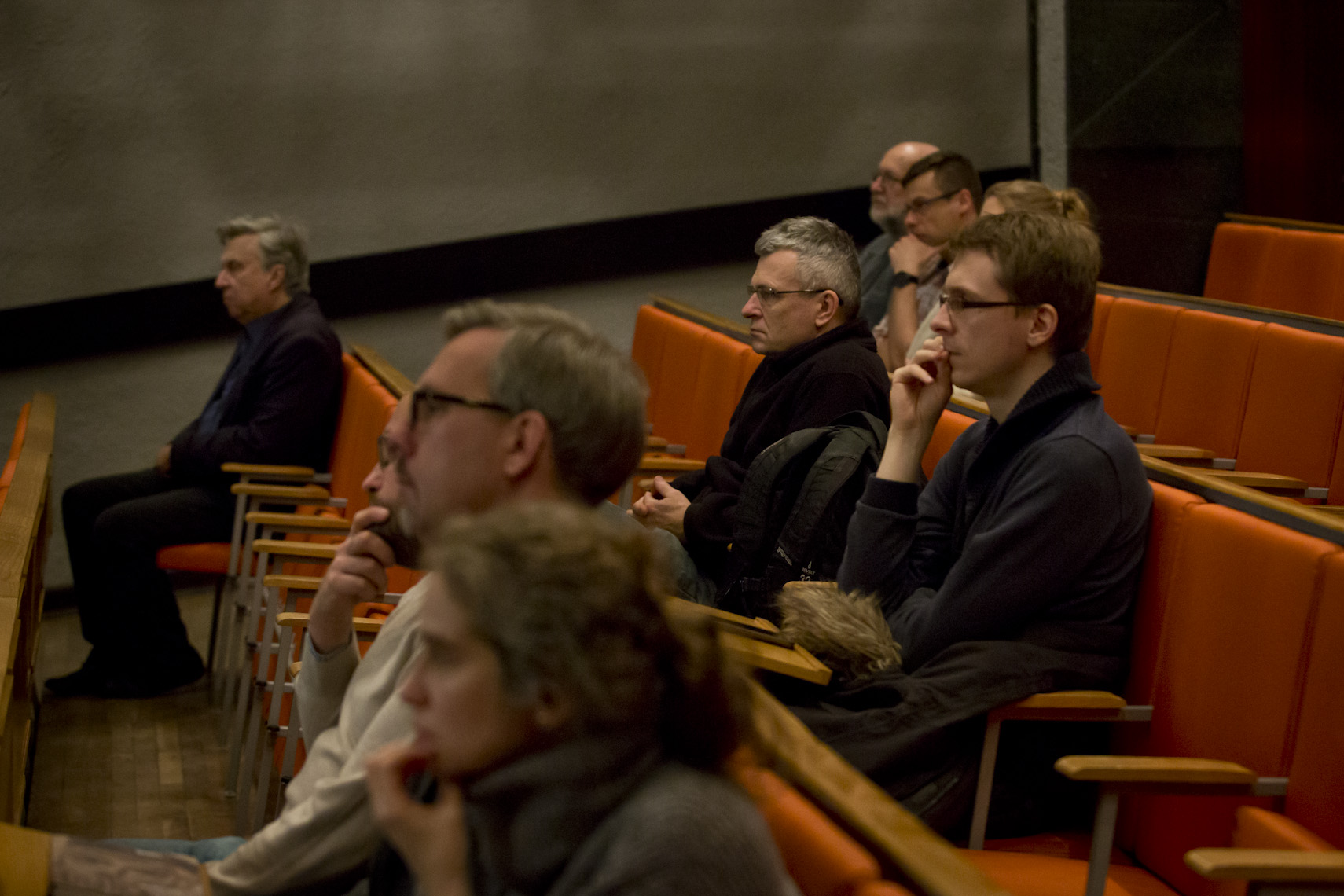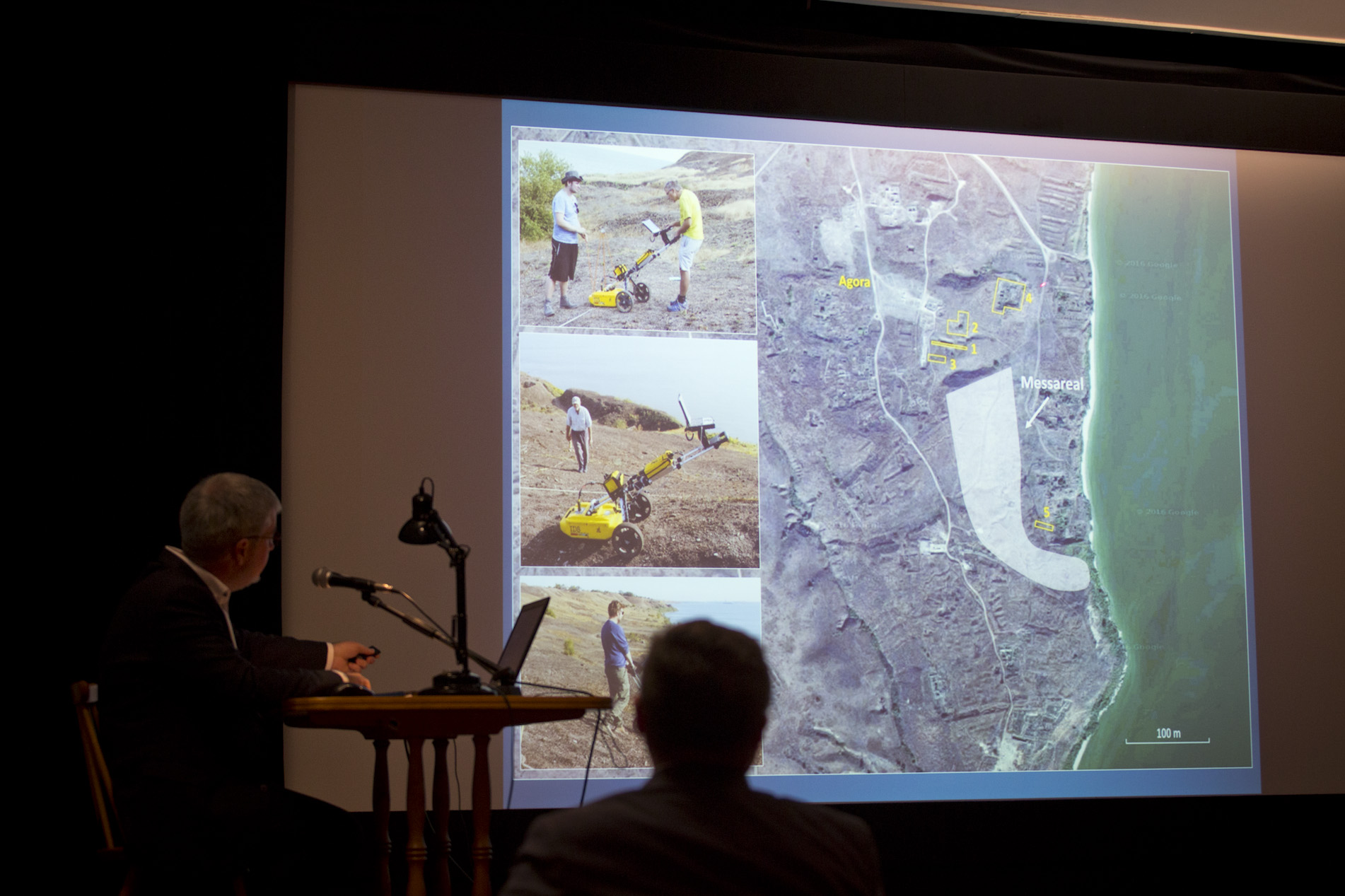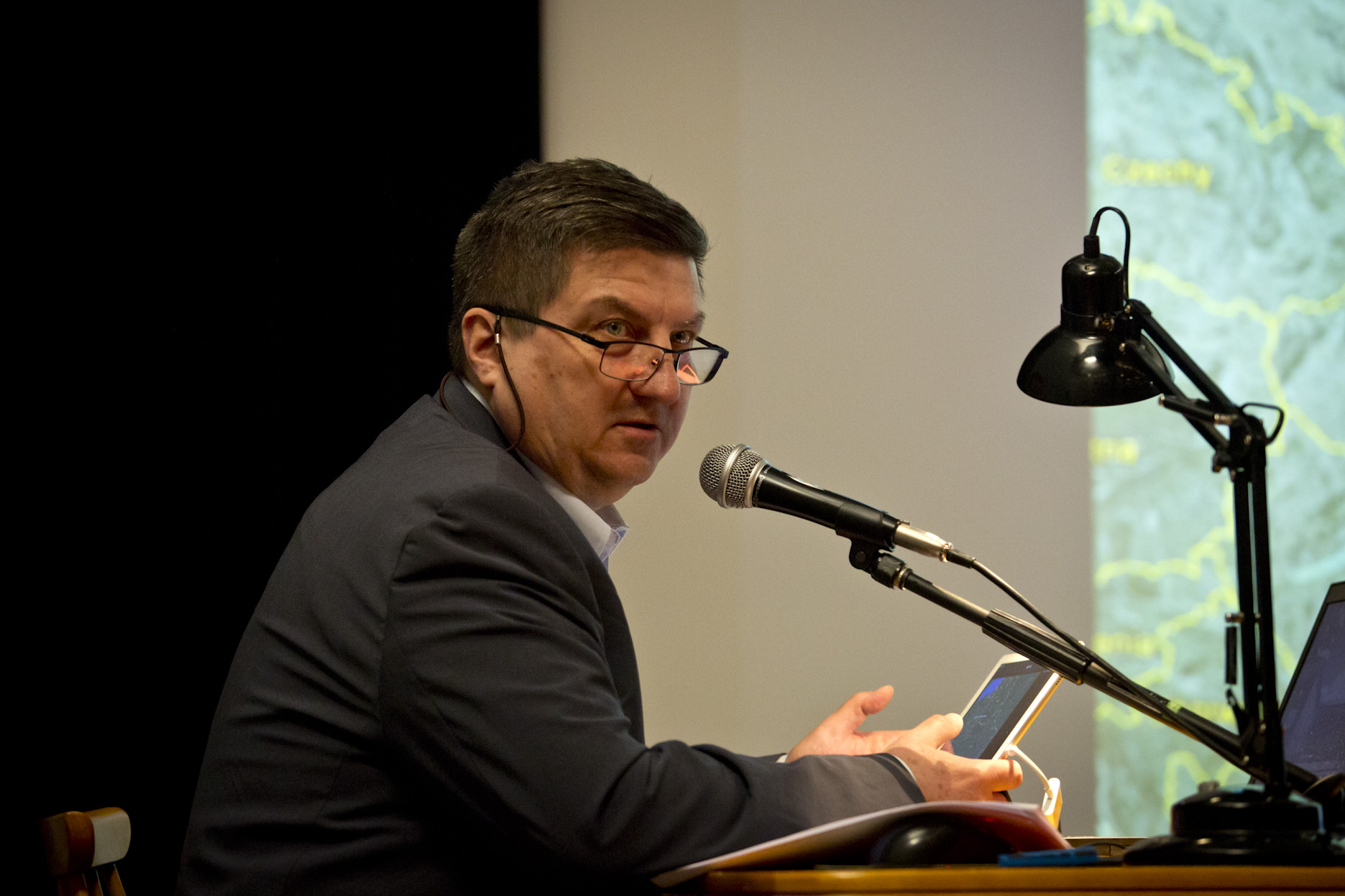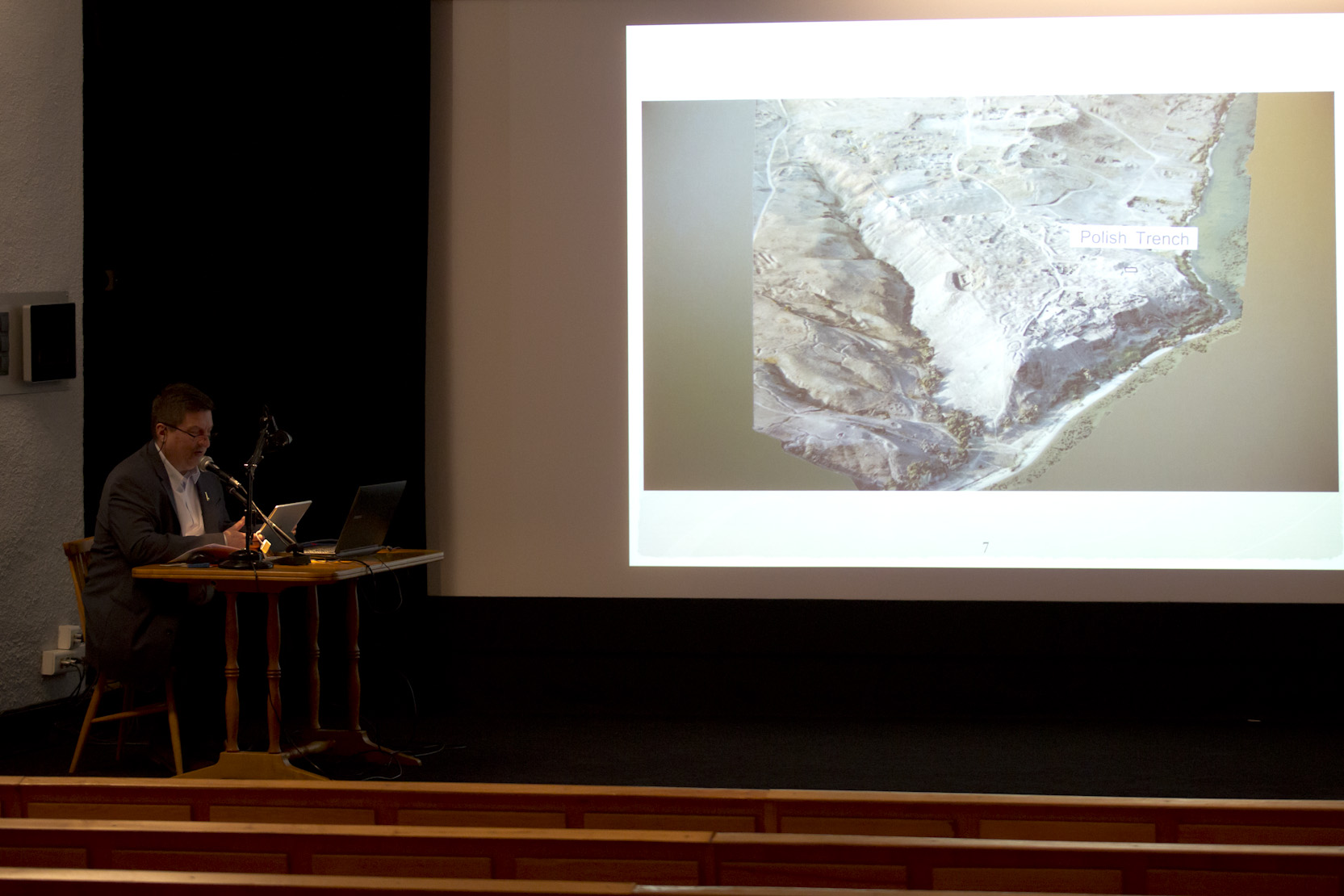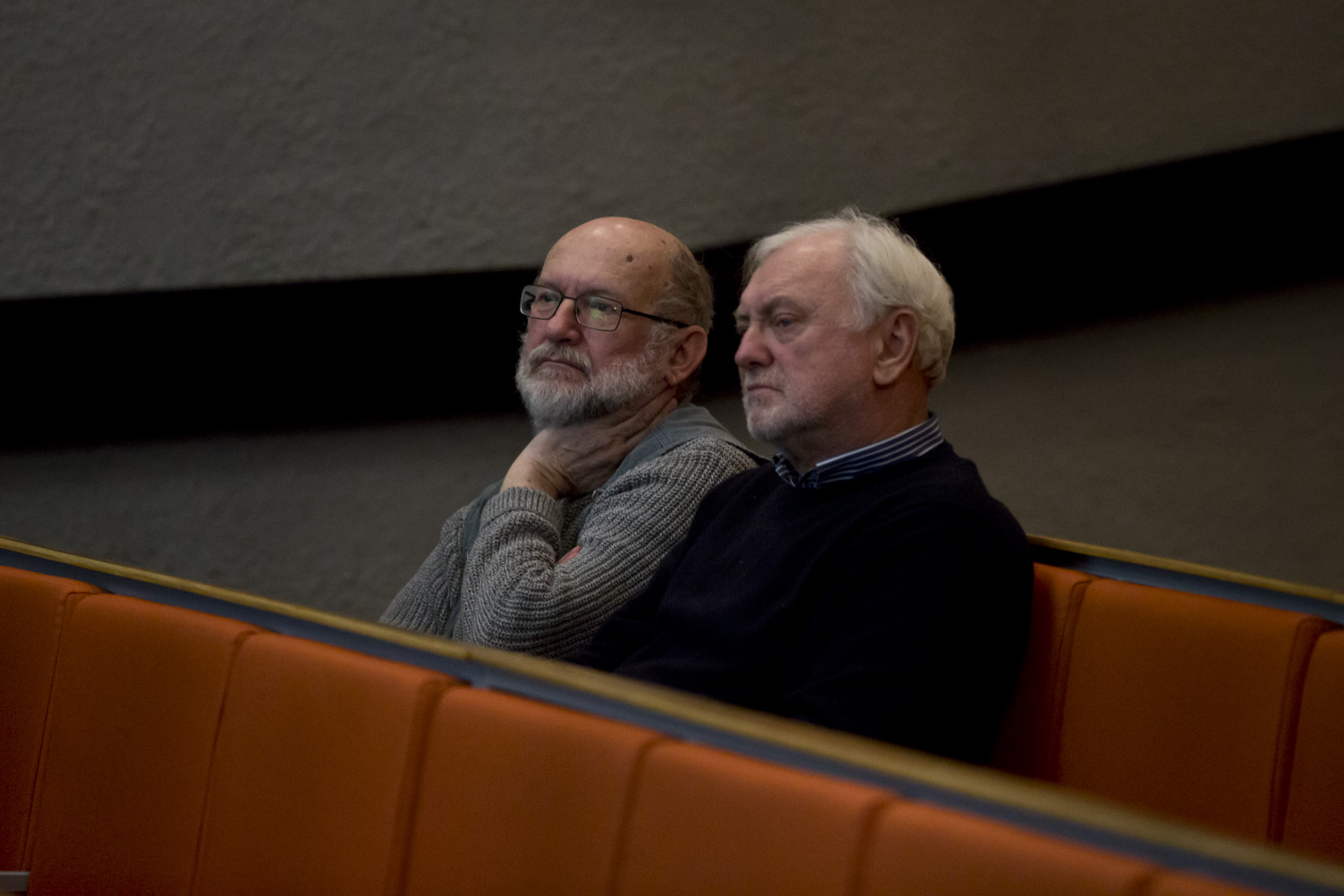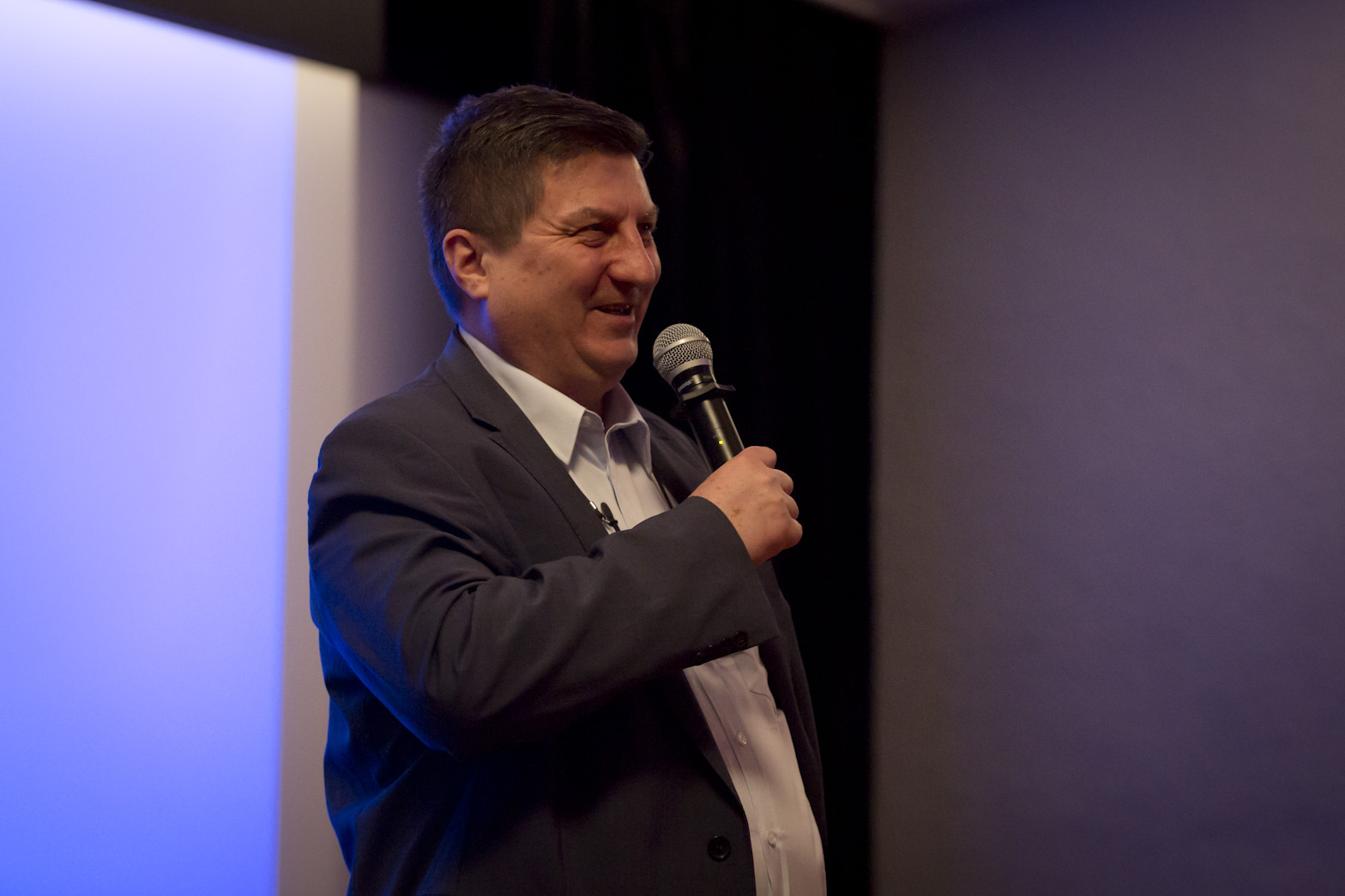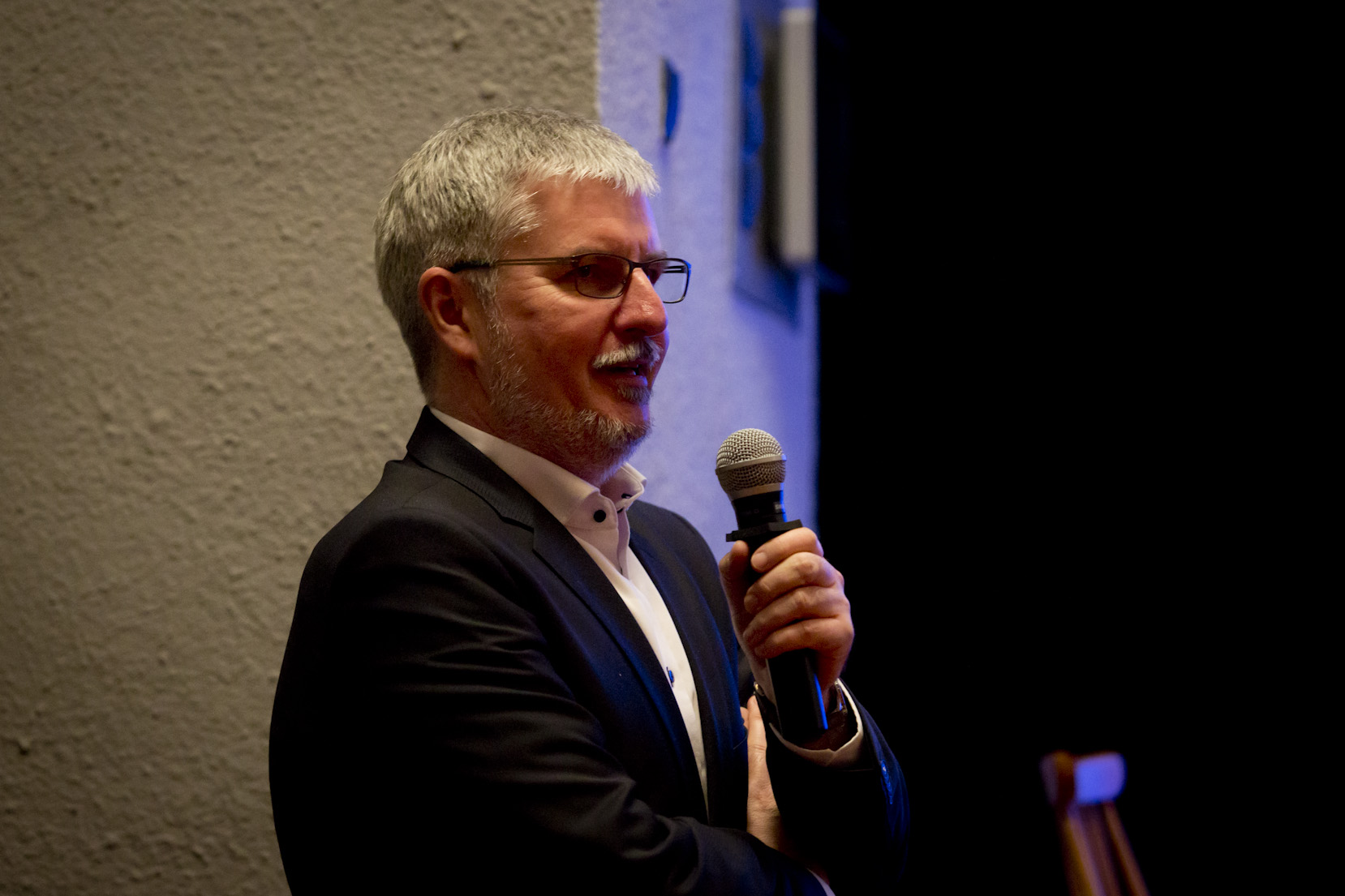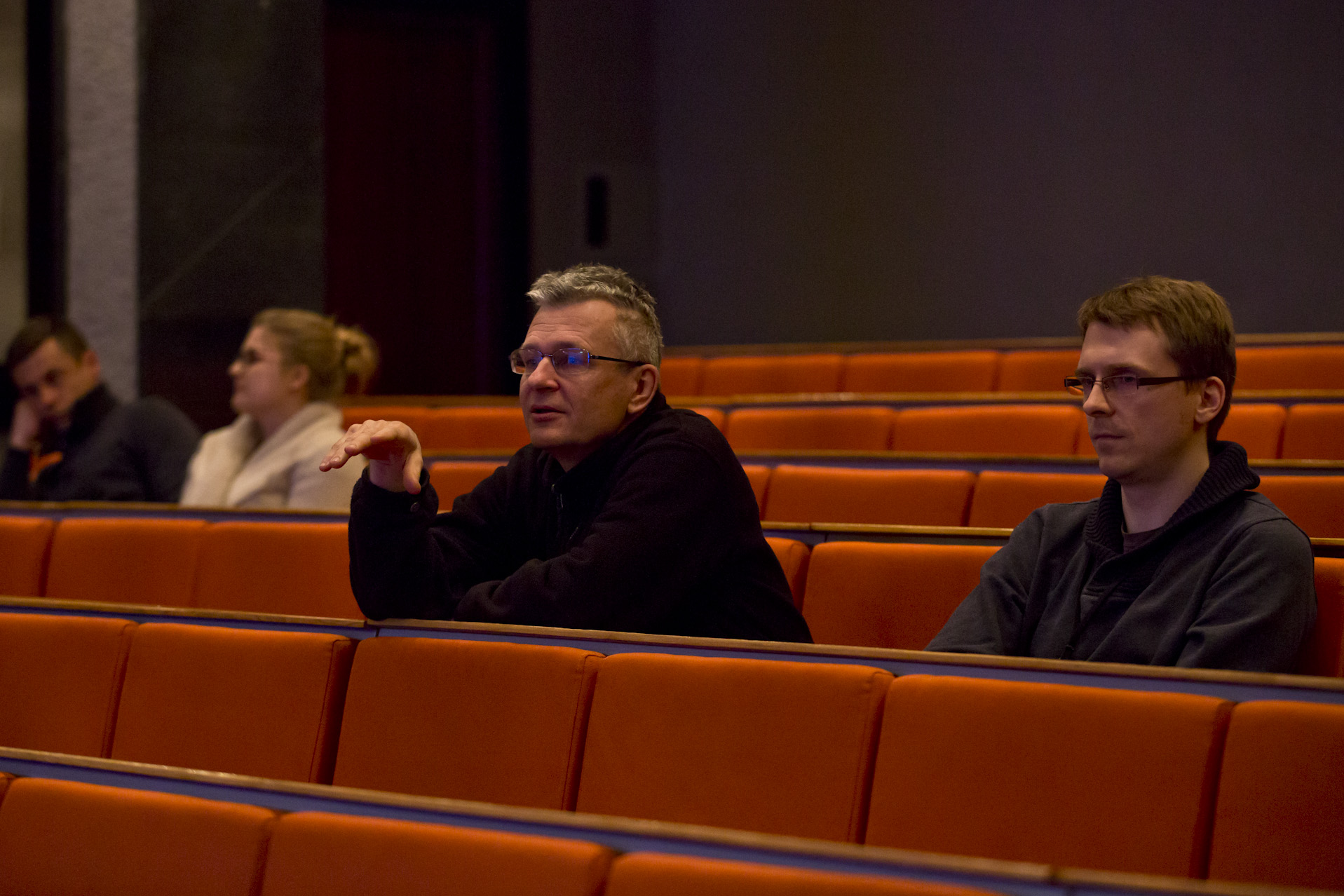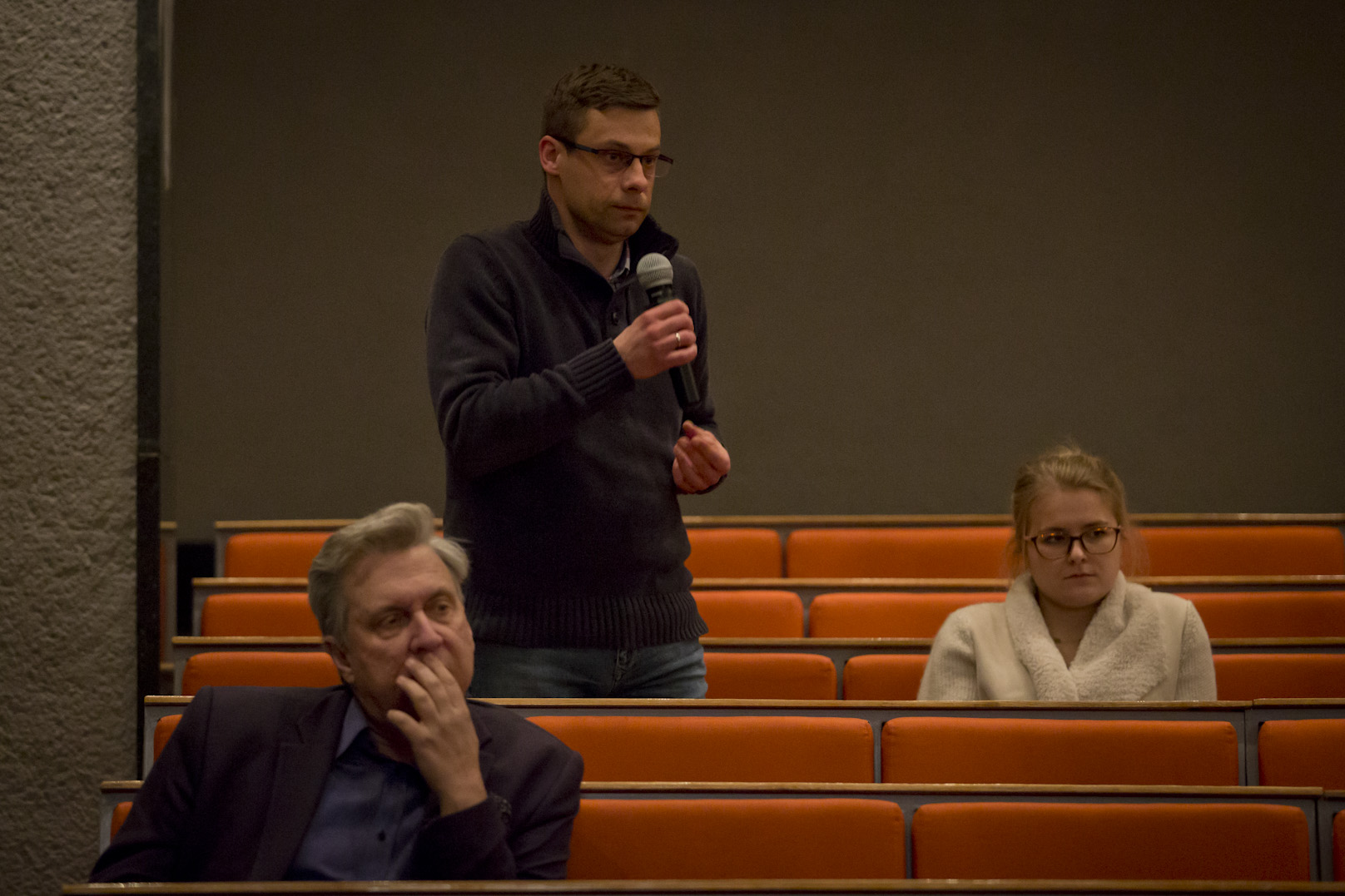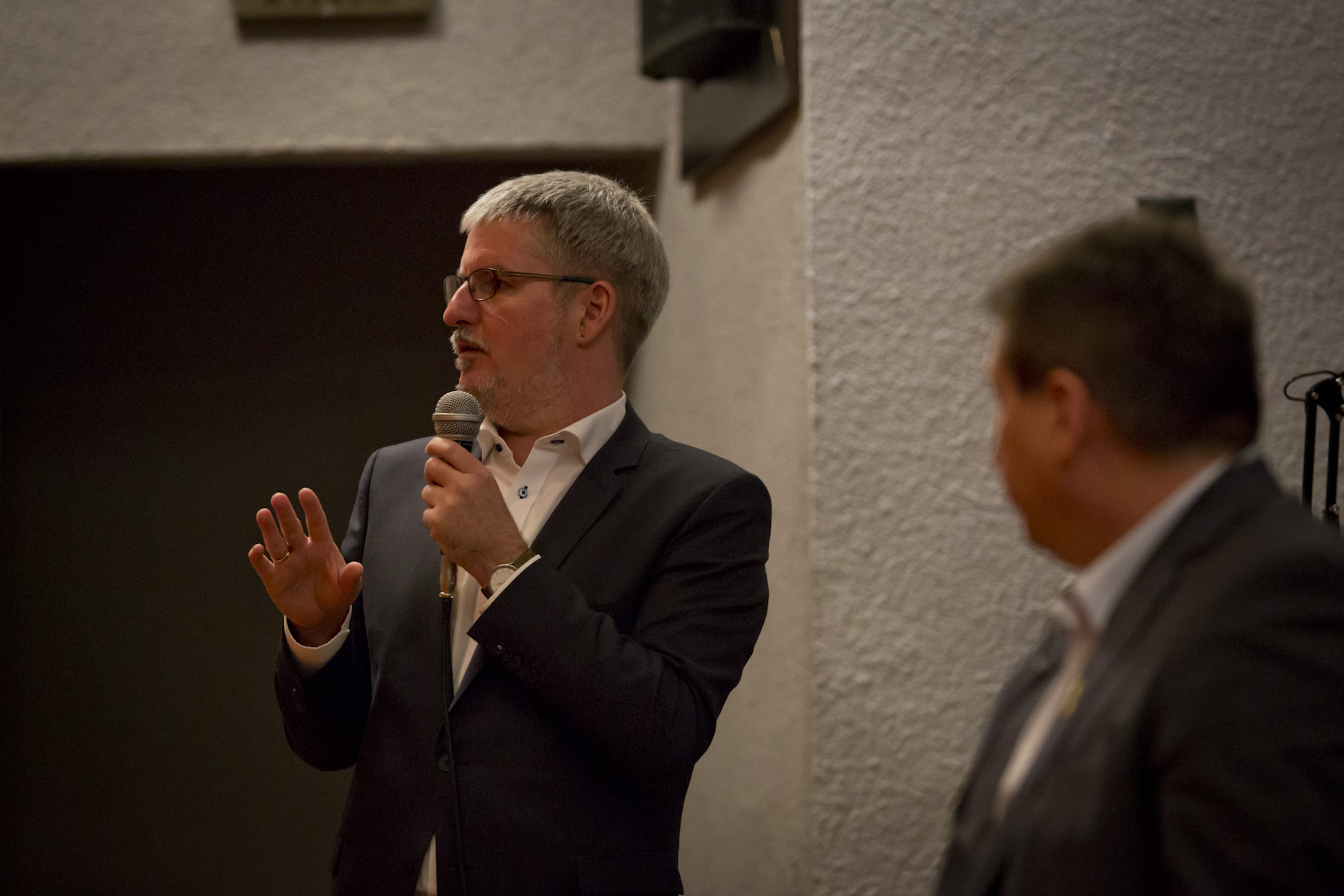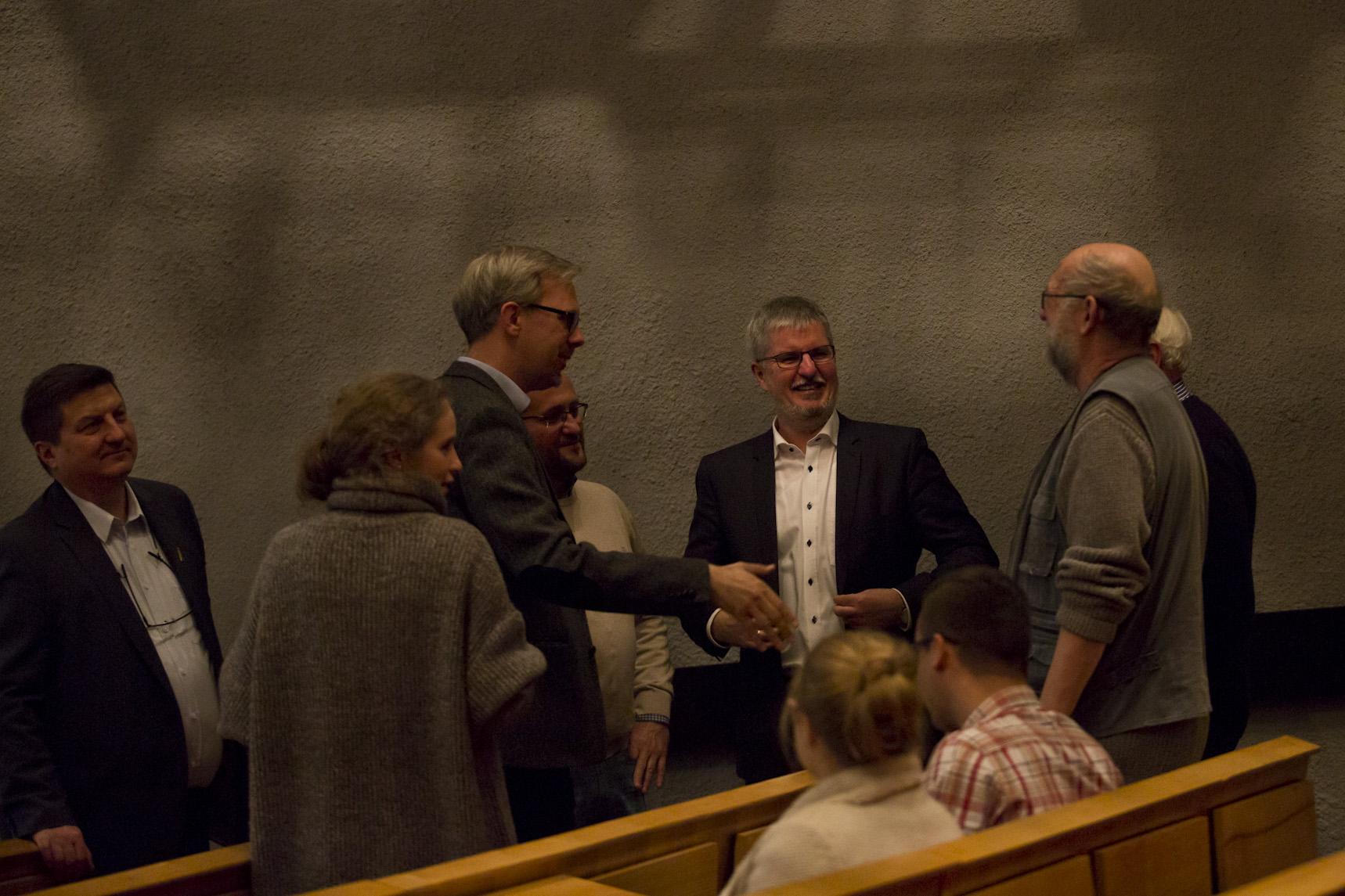At 22 March 2018 was held in the NMW a mini-conference about German-Ukrainian and Polish-Ukrainian archaeological excavations in Olbia. Leaders of the project – PhD Jochen Fornasier and PhD Alfred Twardecki presented latest results of their research.
Cinema MUZ / admission free
Program / lectures (held in English):
- The suburb of Olbia Pontica. New results from the German-Ukrainian multidisciplinary project / Jochen Fornasier
In the summer of 2014, interdisciplinary investigations started in the suburb of the Milesian colony – Olbia Pontica, carried out by a German-Ukrainian cooperative project. Based on excavations by Yuliya Kozub in the 1960s and 1970s, who unearthed remains of ancient 5th century BC life and commerce (so-called dug-outs) for the first time, intense geomagnetic prospecting of the area has brought forth spectacular new results. For example, a newly discovered fortification system in the western part of the survey area will, for the first time, help us answer questions about the genesis and dimensions of the suburban area. Archaeological excavations confirm that this territory was used as a settlement as early as the second half of the 6th century BC; and the extensive and somewhat extraordinary range of archaeological finds have also changed our previous ideas of the temporary and rather primitive character of the suburb. Finally, archaeometric analysis of the ceramics found complete the interdisciplinary research activities of the German-Ukrainian project, with the help of which questions concerning the beginning of local ceramic production will be answered in the future. The lecture focuses on the fundamental results of these different scientific disciplines, which have already provided updated reconstructions of Olbia's urban development history from the 6th / 5th century BC.
- Polish Archaeological Mission “Olbia”. Seasons 2016–2017 / Alfred Twardecki
An agreement signed on 30th May 2016 between the National Museum in Warsaw and the Institute of Archaeology at the National Academy of Sciences of Ukraine made possible the start of a three-year archaeological campaign on terrain of the ancient city of Olbia, as a part of the Ukrainian “Olbian Archaeological Expedition”, led by Professor Alla Buiskikh. In this paper, results from the first two seasons of archaeological excavation by the Polish Archaeological Mission “Olbia” at the “Roman Citadel” area will be presented. One of first achievements to be mentioned involves the archaeological material unearthed from the final period of human presence in ancient Olbia. The question, which has prompted fierce discussion among scholars in the past few decades, is most likely to be answered after analysis of the Polish Mission’s findings. The remarks made after analysis of bones found in the “Polish” trench are another significant result of this very first season. Finally, results of the analysis of coins dug out over the two years of excavation so far are particularly interesting.
Jochen Fornasier, born 1968 in Bochum, Germany, studied Classical Archaeology, Ancient History, and Prehistory at the Westphalian Wilhelms-University in Münster. After gaining his doctorate (1999), he led archaeological excavations on the Taman'-Peninsula (Southern Russia) in a cooperation project between the University of Münster and the Institute for the History of Material Culture in St. Petersburg. From 2000 to 2004 he worked in the Eurasian Department of the German Archaeological Institute in Berlin and led the German-Russian excavation project in the Greek colony Tanais near the modern-day city of Rostov-on-Don. In 2007, he was habilitated with a work on the Greek colonization of the Black Sea area at the Martin-Luther-University Halle / Wittenberg. Since 2009, Jochen Fornasier has been working at the Goethe University Frankfurt, where he was appointed professor in 2014. His recent scientific studies include studies on Greek colonization, ancient religious beliefs and ancient mythology. Since 2014, together with Alla Buyskikh from the Institute of Archaeology of the National Academy of Sciences of Ukraine in Kiev, he has led the German-Ukrainian interdisciplinary cooperation project in the ancient Greek colony of Olbia Pontica on the Ukrainian Black Sea coast, mainly funded by the German Research Foundation (DFG).
Alfred Twardecki (born 4th February 1962) is a Polish historian of antiquity and a translator. He works as curator at the Department of Ancient and Eastern Christian Art at the National Museum in Warsaw. He graduated in 1986 from the Department of History at Warsaw University.
He served as assistant in the Chair of Ancient History of the Warsaw University from 1986 until 1992 when he took up a position at the National Museum in Warsaw. He is the author of numerous articles and books about Ancient Greece, holds a scholarship from the Centre of Mediterranean Archaeology at Warsaw University and Deutscher Akademischer Austauschdienst (DAAD), guest of École française d'Athènes, director of the Cooperation Program between the National Museum in Warsaw and the Kerch Republican Historic-Cultural Museum (Crimea, Ukraine). Since 2008 he has been director of the Polish Archaeological Mission "Tyritake" of the National Museum in Warsaw. This mission has been indefinitely suspended since 2014. Since 1st February 2012, he has been head curator of the Collection of Ancient and Eastern Christian Art. Since 2016 he has also been director of the Polish Archaeological Mission "Olbia" (Olbia Pontica).
